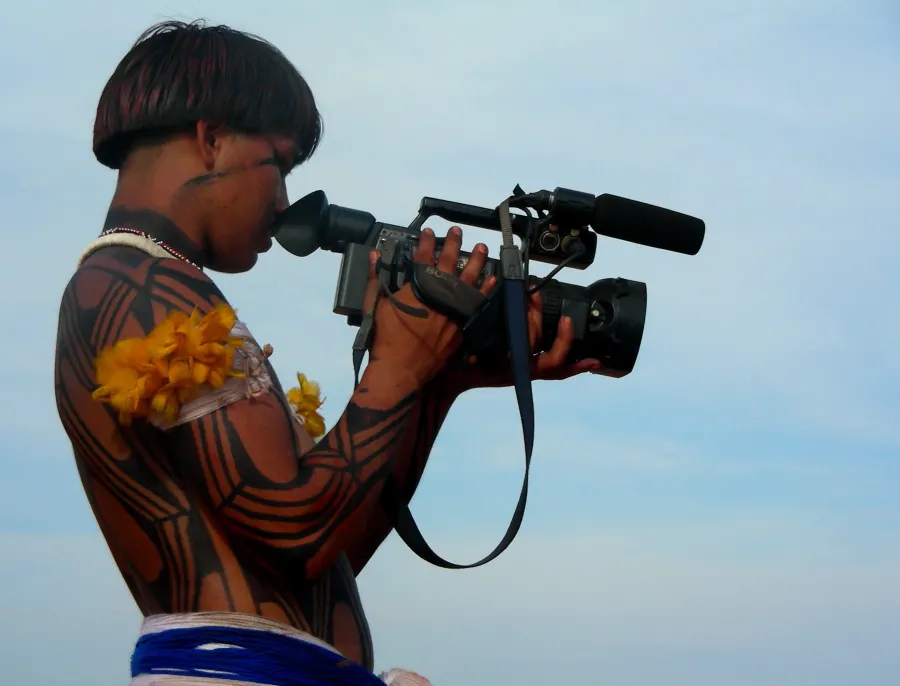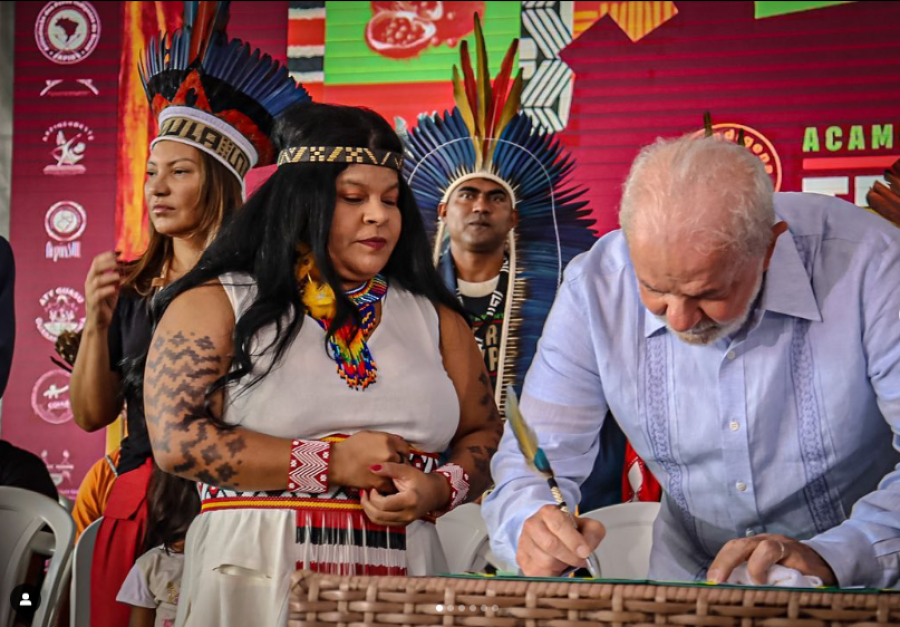The Nucleus for Indigenous Rights (NDI) was conceived in Brazil in October 1988 in the aftermath of the victorious battle to preserve and in many cases strengthen the rights of Indians under the new Brazilian Constitution. NDI's goal is to monitor the legislative, executive, and judicial branches of Brazil's government to ensure that the letter - and spirit - of Brazil's new Constitution are upheld. Many of the lawyers and lobbyists who were active in the constitutional debate are now on the NDI staff. They are working to assist in drafting the laws as well as in implementing and interpreting them, all of which will contribute to furthering the cause of indigenous rights in Brazil.
NDI's most important and urgent work could well be to bring test cases to the Brazilian Supreme Court. Such cases could establish positive precedents on Indian rights under the new Constitution, precedents that would be very difficult to overturn legally. These cases could have the same impact on Indian rights in Brazil as some of the US Supreme Court's decisions in the 1950s had on civil rights for blacks.
NDI's activities in the Supreme Court are not limited to interpreting the Constitution. The Supreme Court can hear cases regarding the executive branch's decrees even if these cases are aimed at a single tribal group in Brazil. For example, the Supreme Court is reviewing the executive decree establishing a number of island Yanomami reserves within a larger national forest reserve. The Court will determine if it will hear a case on whether the decree violates the constitutional rights of the Yanomami. If it decides that the decree is an administrative one and affects only one group, it will probably not hear the case; however, if it interprets the action to be a normative decree, which establishes precedent for how the executive will work with Indians in various parts of Brazil, then the case can be heard in the Supreme Court over the wishes of the executive branch. Since the executive branch is promoting the island concept of Indian land rights for a number of other groups in Brazil, it appears that the case will probably be heard by the Court in early 1990.
NDI was able to convince the chief justice of the Supreme Court to review a complete brief on the Yanomami case after he met with Davi Yanomami. While in Brasilia, Davi was denied an audience with Brazil's president, Jose Sarney, but he was able to meet with the head of Brazil's Congress, the head of the National Prosecutors' Association, various ministers and members of Congress, and members of the National Security Council - the first time any Brazilian Indian leader had met with these officials. Such meetings provide Indians with an opportunity to explain their situation to people who hold considerable power in influencing the Indians' future.
In a related matter, NDI brought three representatives of the Waiapi from Amapa to meet with the interministerial group whose mandate was to determine the land rights of the Waiapi. The Brazilian government intended to create a series of islands for the Waiapi within national forest reserves, a move that would enable the government to exploit the considerable gold deposits in the area without the congressional approval required under Brazil's new Constitution. Because the Waiapi representatives were present, they could state categorically that not only villages had been left out of the island group, but that they had not even been indicated on the map. As a result of this information, the decision was delayed. If the Supreme Court agrees to hear the Yanomami case, the demarcation of the Waiapi land, based on this same island concept, will also be put on hold pending a decision on the Yanomami islands.
During the next few months, NDI will continue to monitor any legislation proposed in Congress that will affect Brazil's indigenous peoples. Two people are working full time to help draft wording that is more favorable to Indian rights and to lobby key members of Congress on Indian rights issues.
NDI also works closely with the Union of Indigenous Nations (UNI) and with the Ecumenical Center for Documentation and Information (CEDI), the largest human rights organization in Brazil. Each group provides NDI with information on any rights violations directed at specific indigenous groups and with background information and documentation that are essential for the briefs that NDI will argue in court. Consequently, Cultural Survival has decided to support the efforts of each of these three groups - NDI, UNI, and CEDI - to help them continue working together in the most productive manner. In the near future, most of Cultural Survival's support will focus on setting up the communication and documentation networks within UNI and CEDI, networks that are essential to the success of NDI's mission and to informing the world about the problems that Brazil's Indians face every day.
Article copyright Cultural Survival, Inc.


